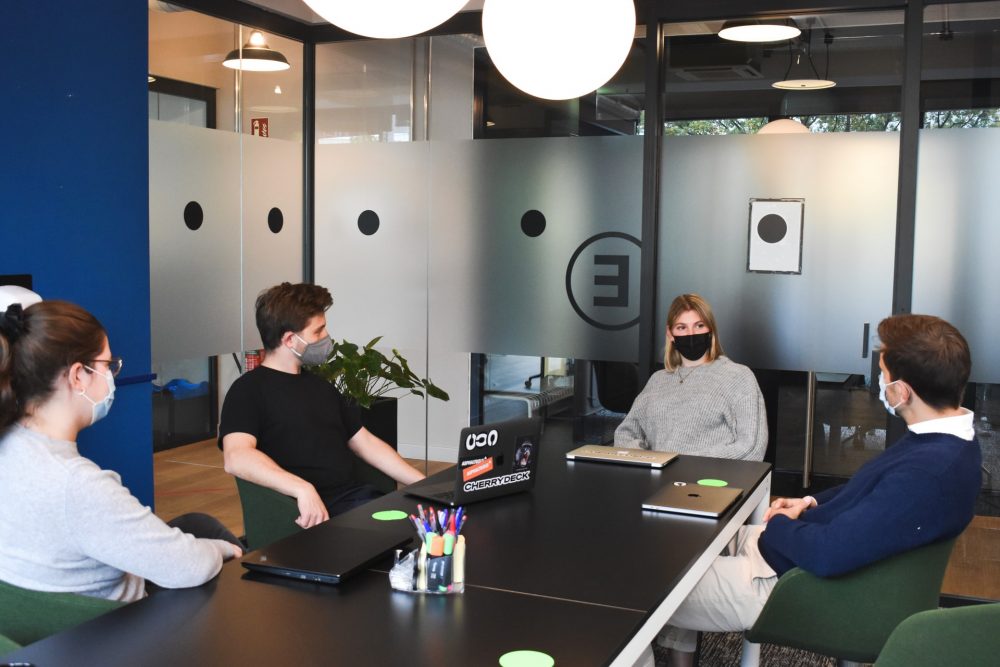
Article by Jamie Mackenzie, director at Sodexo Engage
According a survey from the Office for National Statistics published in March 2021, three in 10 UK adults feel that life will return to normal within six months, up from the 20% recorded in February and 10% during the autumn of last year.
Without a doubt, the UK is progressing cautiously yet steadily along a path leading out of COVID-19 restrictions via its roadmap, underpinned by the remarkable efforts of the NHS in delivering a national vaccination programme that will be vital to restoring the confidence needed to reintegrate society.
And as each new milestone is reached, familiar routines are likely to return, not least the reopening of workplaces, which is already starting to happen. It is worth noting, however, that this shift requires careful ongoing consideration.
The first thing to realise is that every individual will feel differently about the easing of restrictions. While some may jump at the chance to return to familiar environments, others will feel less at ease. Indeed, research shows that nearly two-thirds (65%) of Brits are anxious about the prospect of going back to the office.
Don’t disregard the risks
The question for employers is therefore clear: How can the safe return of people to the workplace be actively and responsibly managed? The simple answer is by placing employee health and safety at the heart of return-to-work processes. But there are no quick wins here; extensive planning will be needed to map out the plans that are needed to minimise risk and allow employees and business to prosper.
The first step, therefore, is to undertake a risk assessment. The phrase ‘prepare for the worst’ may sound like a cliché, but it carries a vital message. Employers basically need to consider everything that could go wrong. Some hazards may be obvious, but others might be more subtle, so it will be important to think about the logistics and practicalities of having a room full of employees all working together in the same space.
More robust cleaning, handwashing, and hygiene procedures; rearranged office layouts that better maintain social distancing; ventilation and air flow improvements; Perspex screens; and one way traffic around buildings are all ways in which businesses can work to eliminate hazards. However, businesses will need to identify the risks before deciding on how to respond to them.
In order to make these unfamiliar procedures stick and become second nature, it’s important for employers to recognise and reward staff following the guidelines. Appreciation is something we’ve all learnt a lot about over the past year and creating a culture where positive behaviour is recognised and rewarded is key to building safer habits and a happier workplace. Employee recognition platforms are a great way to reward those sticking to the new rules – it can also be incorporate peer-to-peer recognition, something we expect to increase in popularity over the coming year.
Facilitate employee-employer dialogue
It is equally important to recognise that some degree of anxiety and difficulty will remain, no matter how vigorous the health and safety policies.
Workers that previously relied on public transport may be worried about undertaking that same commute, for example, while those who rely on their parents or grandparents for childcare may not wish to put their relatives at risk.
To understand such concerns, two-way employee-employer conversations must be established and should be transparent. Employers should be willing to share the details of the risk assessment they are conducting and highlight the steps they will be taking to address any hazards. It is important that employees have a full understanding of these practices, not only to put their minds at ease, but also to ensure that any measures that have been put in place are being adhered to.
Alongside this, as part of effective employee-employer dialogue, making provision for strong wellbeing policies is absolutely critical. Employers can further support staff making the transition to the ‘new normal’ by adopting an open door policy to discuss challenges or concerns staff may have. To this end, offering an employee assistance programme (EAP) extends wellbeing support through offering professional help if and when needed.
Flexible working has its benefits
It’s also a good idea to consider whether it’s essential that employees return to the office at all, and to consider this question in light of the risks identified.
For many, the past 12-18 months have demonstrated that remote working models can be successful, so employers should not shy away from considering more flexible models full-time. In fact, research shows almost nine out of 10 people do not want to return to the office permanently, with half of employees stating they would likely leave their jobs after the pandemic if employers don’t offer a hybrid work model. Not only would doing so naturally increase staff retention and the interest of new talent, but also could do wonders for the physical and mental wellbeing of employees, with many studies showing productivity benefits associated with this way of working.
By taking just a few simple steps, employers will be better placed to embrace the return of their staff with open, albeit socially distanced arms. As the UK continues to unlock along its roadmap, the time has come to get society moving again. By creating a plan that puts employees’ best interests at the heart of the business, companies will be able to move forward into a post-lockdown world as a strong, unified team.
About the author
Jamie has been with Sodexo since 2013 and is responsible for the company strategy, proposition development, brand management and communications. He brings over 13 years of business and consumer marketing experience in senior roles within blue chip organisations. Jamie is also an advocate for diversity and inclusion at work and has spoken frequently about the ways to create a positive workplace culture.
Are you looking to return to work after a career break? Searching for advice and tips? WeAreTheCity has a whole dedicated section to returnships and returning to work. You can find open returnship opportunities, advice for experts about returning to work and tips on flexible working.









